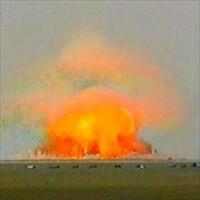SUDAN-CHAD: Bombing blocks access to new refugees

The UN refugee agency (UNHCR) is warning that its teams in eastern Chad that have been providing assistance to 10,000 newly arrived refugees from Sudan’s West Darfur region have been forced to withdraw because of aerial bombing across the border, close to where the refugees are located.
“Aerial bombing overnight and this morning in West Darfur, Sudan, close to the border with Chad, has forced UNHCR to withdraw its team caring for newly arrived refugees in the Birak area away from the insecure border,” UNHCR spokesperson Jennifer Pagonis said in a statement on 19 February.
According to the latest UNHCR figures, 10,000 new refugees have fled into Chad since 8 February. The majority of the new arrivals had already been internally displaced in Sudan, the agency said, following an assessment mission over the weekend.
Most of the refugees are in Figuera in eastern Chad, 90 km south of the Koumoungou camp in the town of Guéréda, with smaller numbers in Birak, Djanje and Korok also close to the border.
On 11 February Chadian Prime Minister Nouradine Delwa Kassiré Coumakoye said the government would refuse entry to any new Sudanese refugees.
On 15 February armed men blocked UNHCR from loading newly arrived refugees onto trucks to move them to camps inland away from the border.
“For protection and security the refugees need to be moved urgently away from the border,” Pagonis reiterated on 19 February, without mentioning why the government is opposed to moving the refugees.
“We are still discussing the transfer to existing camps near Guéréda with the Chadian authorities.”
Newly arrived refugees say aerial bombing in West Sudan was still continuing on 19 February and explosions could be heard from across the border in Chad, Pagonis said.
“More arrivals are still expected and with the fresh bombing we can expect more displacement in West Darfur.”
Most of the new arrivals fled bombings around camps for internally displaced camps in West Darfur, according to UNHCR.
“A group of women the UNHCR team interviewed on Monday said they tried to return to Silea in West Darfur to collect household goods but were stopped from returning by the Sudanese army or the Janjaweed milita,” Pagonis noted.
While waiting to be transferred to camps further inland, some of the refugees have received one-off distributions of blankets, water cans, mats, soap and plastic sheeting, as well as high energy food for malnourished children.
Accessing water is “difficult” at the border, Pagonis said, with some refugees having to walk several hours a day to find enough to drink.
See Also
- MAURITANIA-SENEGAL: New hope for long-suffering Mauritanian refugees
- UGANDA-SUDAN: More refugees to be repatriated
- CHAD: Floods block aid to displaced families and refugees
- MAURITANIA-SENEGAL: Fears of lack of preparation abate as refugee returns escalate
- BURUNDI-TANZANIA: Thousands of refugees still awaiting repatriation
 Back and Next - Back and Next
Back and Next - Back and Next See Also - See Also
See Also - See Also